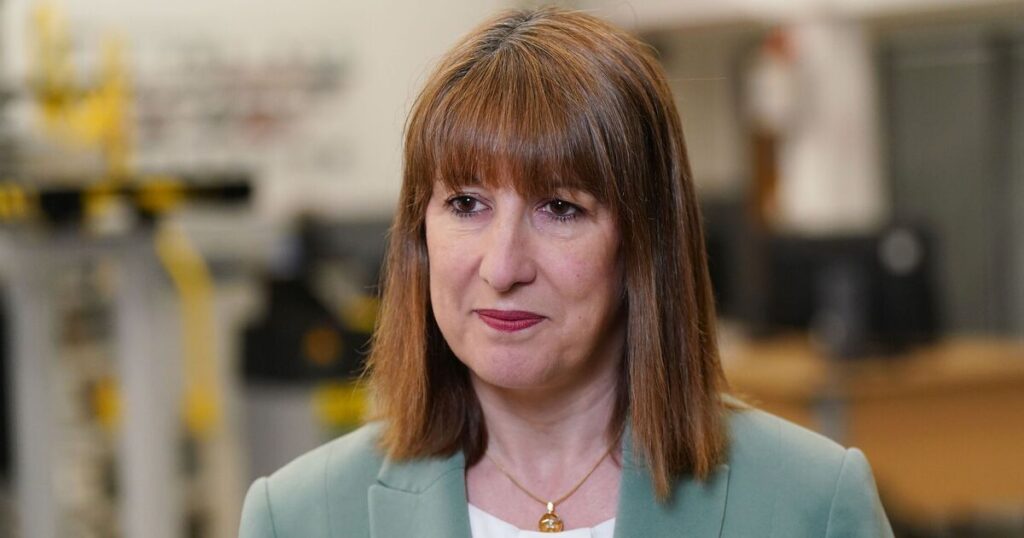
A key financial expert has called on Chancellor Rachel Reeves to halve Cash ISA limits from £20,000 to just £10,000 to ‘solve the problem’ with the tax-free savings accounts.
After months of speculation about a potential change to Cash ISA limits to as little as £4,000, the government has admitted that a change to Cash ISAs is still on the table. And now think tank New Financial has called on Rachel Reeves to slash the limit in half in a bid to get more people to invest in stocks and shares instead of hoard cash.
The firm put forward three options to change ISAs, including merging Cash ISAs and Stocks and Shares ISAs, capping the Cash ISA at £10,000, or merging the ISAs and capping them at £10,000 at the same time.
Think tank New Financial said: “We think there is a strong case for building on the success of ISAs by simplifying and reforming the ISA framework and realigning it with its original aims.
“While structural reform will not solve the problem on its own, we think it is an essential starting point. Given the success of ISAs, it will be important to keep any reforms as simple and intuitive as possible, and to ensure that any changes do not affect the majority of users.
“On that basis, this report outlines four options for reform. Our proposals would only affect the minority of people in the fortunate enough position to be able to put more than £10,000 a year into their ISA.”
The think tank argues that this ‘would not affect’ 80% of Cash ISA users, because the vast majority do not pay in more than £10,000 a year.
It said: “This would not affect the 80% of cash ISA users who currently save less than £10,000 a year into a cash ISA and would not affect subscribers to stocks and shares ISAs. Over time, it could encourage more than 700,000 people who currently save more than £10,000 a year into their ISA to invest an additional £3.8bn a year.”
Currently, Cash ISA limits allow a saver to put £20,000 into an unlimited amount of Cash ISAs or stocks and shares ISAs in a given financial year, as long as the saver does not deposit more than £20,000 in one year.
Once the money is deposited, it’s tax-free, meaning you do not owe any Income Tax on the money even if it stays in the account for years. Each year that follows, you can deposit another £20,000 and in this way some people have hundreds of thousands in Cash ISAs, tax free.
Earlier this year, Rachel Reeves confirmed that ISAs are being looked at, following suggestions they could be reduced to as little as £4,000. She insisted that the £20,000 limit would stay in place but did not specify if the limit would stay in place for Cash ISAs specifically.
Treasury costings documents that were released with the spring statement assume the overall ISA limit of £20,000 remains in place up to and including 2029/30.
Ms Reeves told the BBC: “I’m not going to reduce the limit of what people can put into an ISA but I do want people to get better returns on their savings, whether that’s in a pension or in their day-to-day savings.
“And at the moment, a lot of money is put into cash or bonds when it could be invested in equities, in stock markets and earn a better return for people.
“And so, one of the reasons why we’re looking at advice and guidance that financial firms can give to their customers is to make sure that people are making informed decisions about how to invest their money, whether that’s their pension savings, or their Isa savings.
“So those are things that we’re looking at, but I absolutely want to preserve that £20,000 tax-free investment that people can make every year.”
Paul Williams, managing director of Solomon Global – a specialist supplier of certified gold and silver bars and coins, reacted to the £10,000 limit suggestion.
He said: “City think tank New Financial’s proposal to cap cash ISAs at £10,000 and divert the rest into UK equities might serve the markets and potentially give Chancellor Rachel Reeves a PR win on economic revival, but it does little for individuals seeking financial stability.
“Shares can offer growth, but not everyone wants to ride out market swings or track every tick on a chart to keep their tax-free benefits.”
